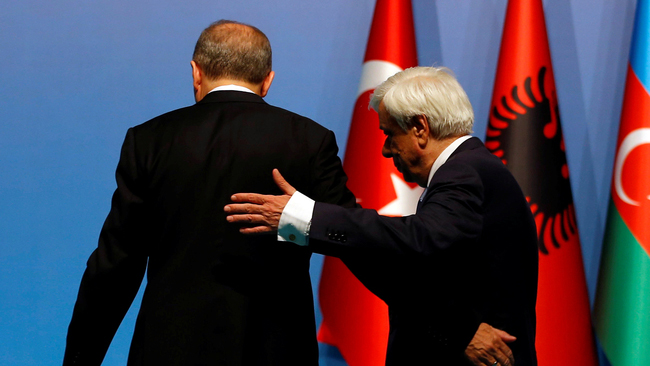The BSEC at an impasse
Pavlo KLIMKIN: “Because of the position of Russia and Armenia, we could not even restate in the document the supremacy of international law”
Ukraine has assumed the presidency of the 26th summit of the Black Sea Economic Cooperation (BSEC). Turkey transferred the appropriate authority to us at the anniversary summit in Istanbul on Monday, May 22.
Overall, 472 delegates attended the 25th summit in Istanbul. Among them, there were presidents of two countries (Greece and Moldova), prime ministers of Azerbaijan and Russia, and ministers of Serbia, Armenia, Bulgaria, Moldova, and Greece.
The event was covered by 362 accredited journalists from all countries of the Black Sea region. However, the Ukrainian media virtually ignored the summit. Den/The Day’s correspondent was the only Ukrainian journalist present at it.
This is despite the event being really worthy of Ukrainians’ attention, if only because Foreign Minister of Ukraine Pavlo Klimkin demanded during the ministerial meeting, which is the highest governing body of the BSEC, that the organization include in the declaration of the anniversary 25th summit the determination of the Russian Federation as the aggressor. His position was supported by... Georgia. As expected, the representative of the Kremlin took an issue with this demand. Having enlisted the support of Russia’s “ally” Armenia, they refused to vote for the new version of the declaration of the BSEC’s 25th summit, proposed by Ukraine and Georgia.
By the way, Russia was represented at the ministerial meeting not by Foreign Minister Sergey Lavrov but rather by his deputy Vasily Nebenzya, who, as reported by Russian media, is slated to replace the late Vitaly Churkin in the UN posting. Nebenzya is an experienced diplomat. He started his career in the central office of the Ministry of Foreign Affairs back under the Soviet Union in 1983. He served as permanent representative of the Russian Federation in Geneva. Former deputy UN secretary-general Sergei Ordzhonikidze commented for Russian media on Nebenzya’s chances to get appointed as Russia’s permanent representative to the UN and called him “an unusual diplomat.” “He is an experienced, professional worker, and, last but not least, has a wonderful sense of humor,” Ordzhonikidze was quoted as saying by the newspaper Izvestia. Obviously, Nebenzya will continue Churkin’s line by denying the Russian presence in eastern Ukraine and will ridicule in every way those who provide evidence to the contrary. Nebenzya’s comment on the position of Russia regarding the declaration of the 25th summit was more or less like that.
“Pavlo Klimkin spoke about aggression in his speech. We have, unfortunately, grown used to it. I was not going to say anything on this subject, but eventually said that such statements were becoming a routine. It seems that the Ukrainian leadership has no foreign policy priorities apart from misrepresenting Russia as an aggressor,” Nebenzya said in a conversation with reporters on the sidelines of the forum. According to him, the BSEC was a platform for discussing economic issues, and Russia was therefore outraged at Ukraine’s attempts to politicize the work of the organization. “Sometimes, well-known people try to insert politics in the work of what is an economic summit. This is not only our position, but also that of representatives of other participating countries. Many of them say so, agreeing that it creates an unfair situation where the work of an economic organizations is subject to attempts at politicization.” Nebenzya, however, did not bother to name these “many people” who did not like the position of Ukraine.
The minister described the 25th summit as a very important and useful event for Ukraine by itself. “We have a platform to express our position. We can discuss here some maintenance mechanisms of minimal cooperation at least with those countries of the region that adhere to international law,” explained Klimkin.
“The next presidency will be ours. We will have to deal with a lot of tasks associated with various challenges. We need economic ties, but above all, we need security in the Black Sea region. All nations are well aware that in the current political situation, no reasonable economic cooperation around the Black Sea is actually possible,” concluded Klimkin. According to the minister, the Ukrainian presidency of the 26th BSEC summit has set two key objectives: security in the region and establishing some minimum horizontal economic cooperation with the countries of the Black Sea basin with which it is possible to do.
Newspaper output №:
№32, (2017)Section
Day After Day





